ECONOMIC FIASCO OP-ED
Panama’s masterclass in how to trash a country’s economy
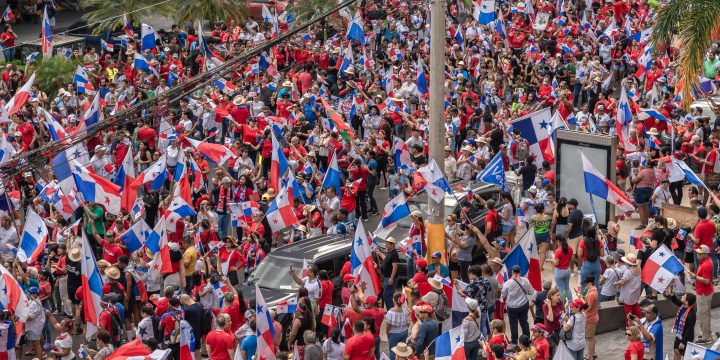
Panama’s politicians have mortgaged the country’s future for short-term populist satisfaction.
On 28 November, the Panamanian Supreme Court released its judgment on the legality of a contract which enabled the Canadian copper mining giant First Quantum Minerals (FQM) to extend its operations in the Central American country.
The court ruled the contract unconstitutional and authorised a process to shut the $10-billion mine down.
The ruling comes after months of protests which have paralysed the country’s major roads, including the port and powerplant servicing the mine, an investment which employs 50,000 Panamanians both directly and indirectly, and provides 75% of export income.
The campaign has coalesced indigenous and environmental groups, along with the usual throng of international celebrity activists.
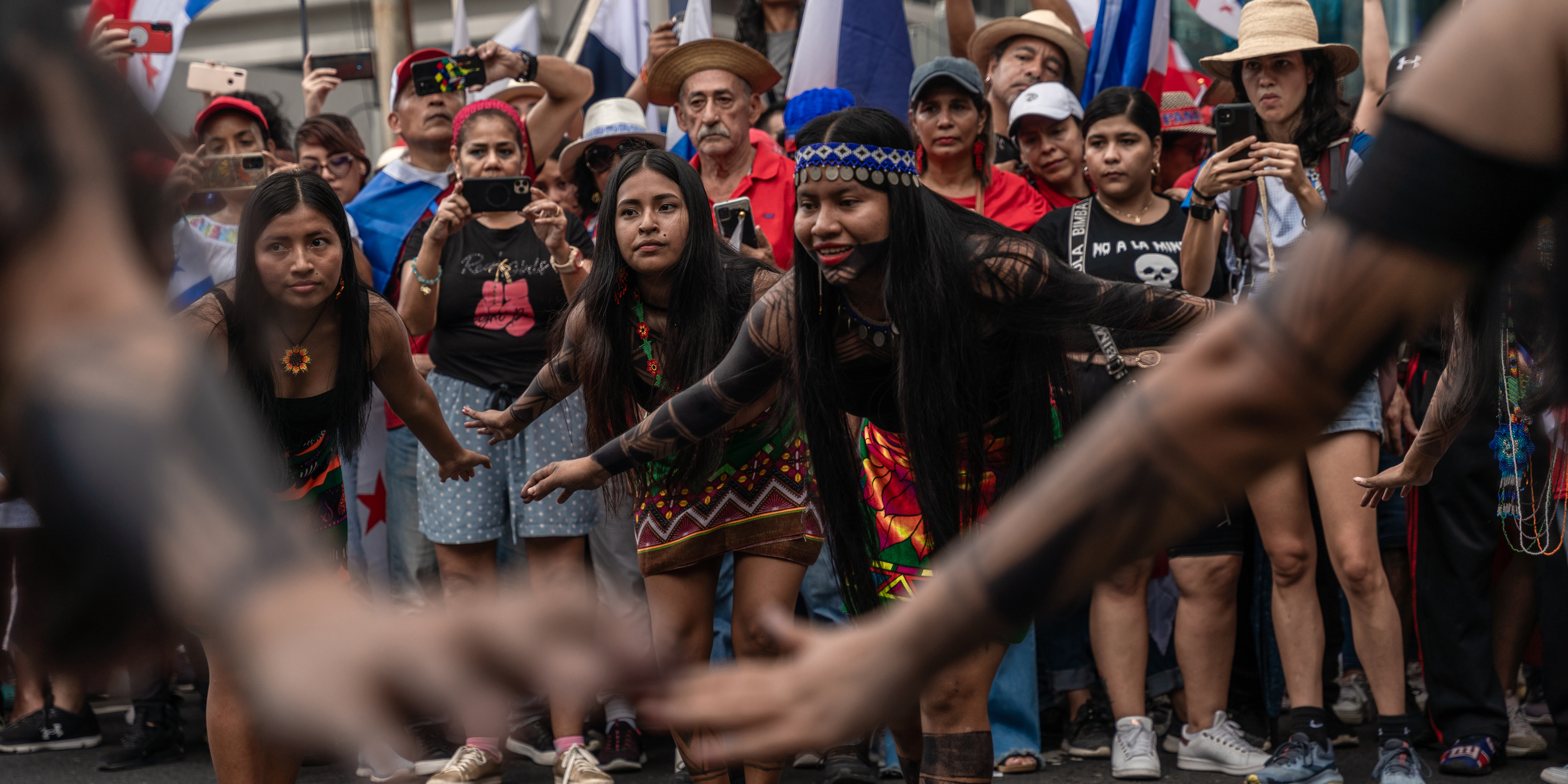
Wounaan indigenous people dance during a demonstration to celebrate a court ruling against First Quantum Minerals. (Photo: Walter Hurtado Lozano / Bloomberg via Getty Images)
Leonardo DiCaprio has been among those playing a supporting actor role in this, his latest environmental cause, offering support for the campaign against the continued operation of the mine.
But DiCaprio is placing himself on the wrong side of history, not for the first time. And not only because the mine put Panama squarely at the centre of the global energy transition, in which copper is a critical component.
But the Hollywood star is not the only one to blame for a fiasco which now most likely will see the government of Panama having to defend itself in several international arbitration actions. If it loses, and the signs are there, these could cost the government north of $60-billion, accounting for lost income by the company and its suppliers and investors.
Politics is at the root of the crisis over the extension of the mine’s operating licence.
It’s become a masterclass in populist politics, hapless and ailing leadership, the peddling of falsehoods and cynical opportunism, an upcoming election, an opposition seeking a populist message and smelling the ruling party’s blood, an opposition leader and former president apparently destined for jail on corruption charges, and widening social and economic inequality and worsening distress countrywide.
This is the stuff of real Hollywood epics.
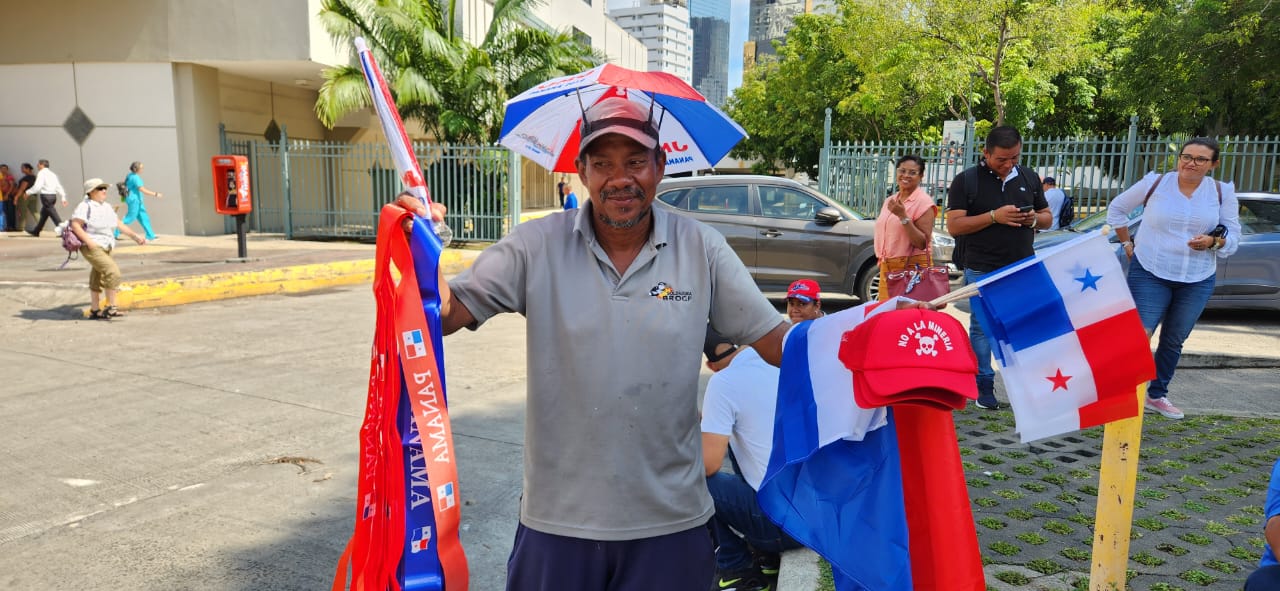
The campaign has coalesced indigenous and environmental groups, along with the usual throng of international celebrity activists. (Photo: Supplied)
The politics of Panama resembles scenes from Beverly Hills 90210, a soap that follows the lives of a group of friends living in a California suburb as they transition from high school to college and into the adult world; 90210 refers to one of the city’s five postal codes.
In addition to the usual fare of romance, friendships and scandal, the show addressed issues from date rape, homophobia, animal rights, alcoholism, drug abuse, domestic violence, eating disorders, racism (including anti-Semitism), teenage suicide and pregnancy, and Aids. You name the topical issues of the day, they had it covered. Today the show might have added cancel culture, the environment, the LGBTQI+, AI and rampant consumerism, among others.
Beverly Hills 90210 is an apt metaphor for Panama 11/20/23. Yet today’s season is scarcely believable by comparison, if similarly febrile, fuelled as it is by innuendo and hyperbole more than fact.
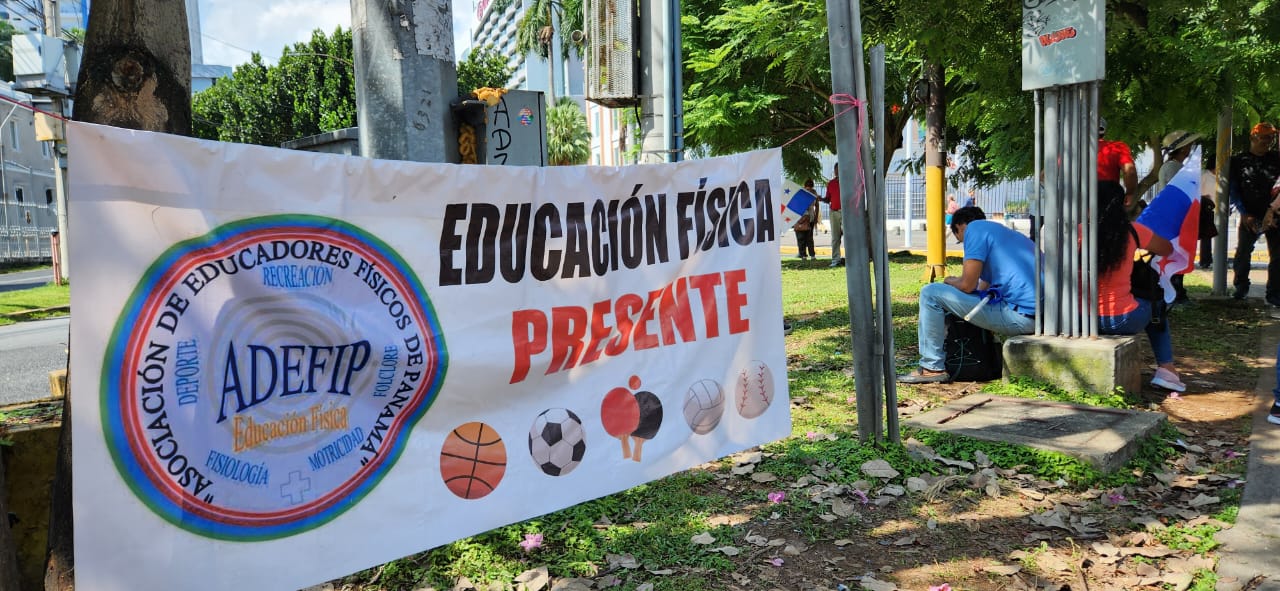
While poverty in Panama declined from 48.2% in 1991 to 12.1% in 2019, this masked jumps in informality and unemployment according to the World Bank, with the 14th-highest Gini inequality rating in the world. (Photo: Supplied)
Supporters of the Panama deal argued that it would enable thousands of jobs while paying the government royalties and taxes of at least $375-million per year — a big slice for a small country of 4.4 million.
Its overall contribution is estimated at 5% of Panama’s GDP.
Given the 35% drop in water supplies to the canal due to El Niño, dropping daily transits from a target of 50 to around just 30, the mine was set to grow in overall economic importance.
Paradoxically, the deal suffered in public eyes because it was approved by an unresponsive government with weak credibility and approved by legislators who are widely considered corrupt.
This view of the political system has its roots in spiralling costs of living and poor services.
While poverty in Panama declined from 48.2% in 1991 to 12.1% in 2019, this masked jumps in informality and unemployment according to the World Bank, with the 14th-highest Gini inequality rating in the world.
The Bank predicted that poverty would come down to pre-pandemic levels by 2025, thanks to GDP growth expected to top 6%, a scenario which ironically relied heavily on copper revenues.
FQM’s investment in Panama might have been the first of many in a country blessed with natural resources. The advantages have so far been considerable. FQM’s contract with the government was spread across two 20-year periods, renewable subject to mutual agreement.
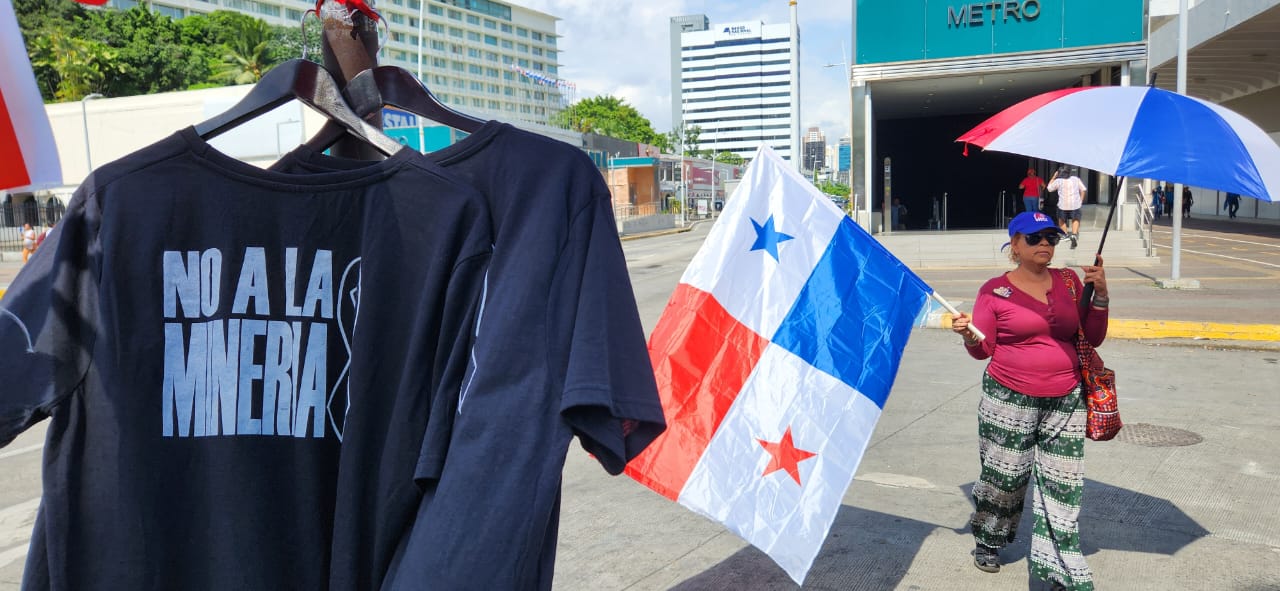
Paradoxically, the mining deal suffered in the public eye because it was approved by an unresponsive government with weak credibility and approved by legislators who are widely considered corrupt. (Photo: Supplied)
The new agreement, signed into law this October, enables Minera Panamá to continue to operate Cobre Panamá, the largest open pit mine in Central America.
The government of President Laurentino Cortizo, which negotiated the new contract after a four-year delay, assured that the new contract would guarantee the environment while increasing income to the treasury tenfold.
Still, an alliance of unions and indigenous groups insisted that the contract be repealed by Parliament, organising the largest protests seen in the country since the National Civic Crusade of 1987, when Panamanians dressed in white and took to the streets, clanging pots and pans to protest against the military dictatorship of “Old Pineapple Face”, General Manuel Noriega.
The general, who had de facto ruled Panama since 1983, was ousted in an American invasion in December 1989.
Spurious arguments
When Cortizo’s government presented a negotiated renewal to the National Assembly this August, the process became hyper-politicised, despite FQM’s presence for a decade. Then, when the Assembly approved the deal, and Cortizo signed it, protests erupted – arguments against the deal being made on several spurious grounds.
These included the idea that the country only got 2% of the proceeds, which was not the case.
One common legend was that the mine was damaging to the environment and drying up the water for the canal, even though Cobre Panamá does not share a water catchment with the canal. In fact, the mine has planted more trees than it has removed, while the major threat to the canal’s water catchment area is not from the mine, but from the spread of pastoral agriculture and slash-and-burn clearance methods.
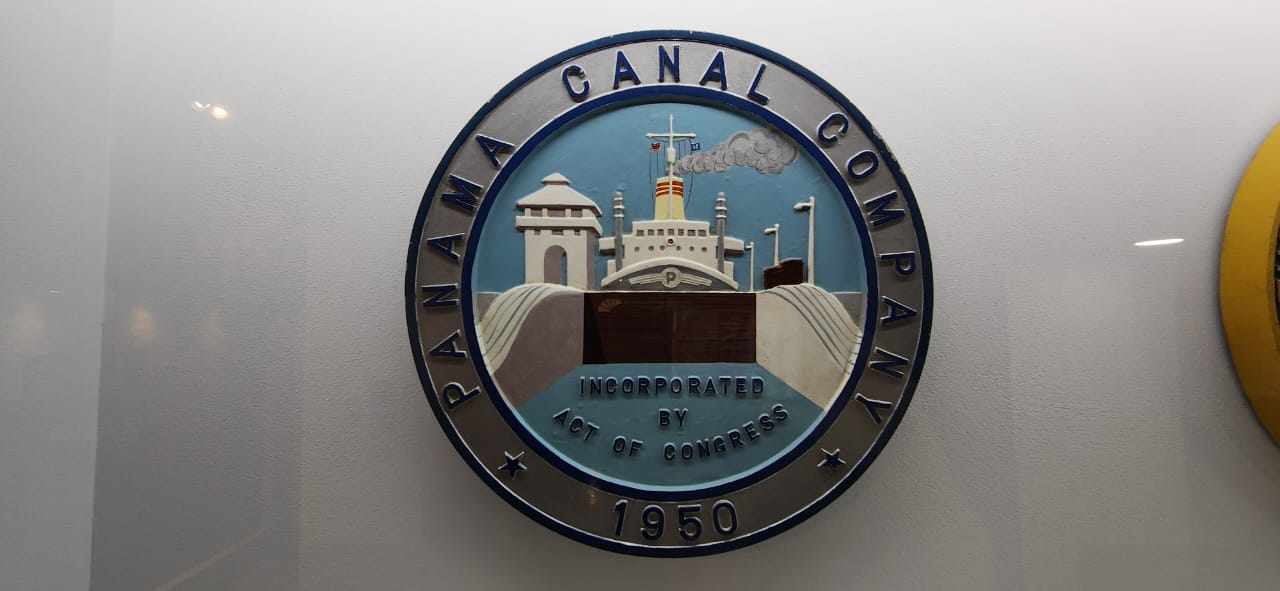
Given the 35% drop in water supplies to the Panama acnal due to El Niño, dropping daily transits from a target of 50 to around just 30, the mine was set to grow in overall economic importance. (Photo: Supplied)
A country of roughly 7.5 million hectares, Panama’s forests account for four million hectares, with pasture making up one million hectares, while cultivated land is 600,000 hectares.
In percentage terms, 23% of Panama’s land is used for agriculture, compared to just 0.07% for mining. That tiny area of land used for mining accounts for 5% of GDP and 75% of exports, meaning each hectare of land used for mining generates $800,000 to GDP, while agriculture makes just $920 per hectare.
But opponents are not really interested in the details or the facts. The arguments against it are deeply immersed in politics.
President Cortizo, hoping to appease the protesters, signed a moratorium on new mining concessions, which applies to some 13 pending applications, but not to First Quantum. Cortizo also announced the holding of a referendum on 17 December on whether to revoke the controversial contract. This idea was quickly withdrawn by the besieged president.
Opponents claimed the new contract (Law 406) was fast-tracked with little public input or transparency and demanded its immediate cancellation.
Arbitration cloud
If the closure were to now go ahead, it would have grave effects; it would certainly spark a series of substantial international arbitration claims. Not only would Panama’s investment grade fall, but so too would its income.
In essence, Panama’s politicians have mortgaged the country’s future for short-term populist satisfaction.
As the most popular politician by a Panamanian country mile, former president Ricardo Martinelli has resigned himself to jail time on what he says is a politically motivated judicial process; the also-rans have been reluctant to contradict the government line, even though their country’s – if not their political – future might depend on it.
The expediency does not end with politics.
Local Panamanian business interests are apparently uncharacteristically disinterested in the case, suggesting that they might cherish brokering a settlement which sees them take a freebie stake in the mine – no matter what this says about the rule of law (or lack of it).
Gringos for the taking, reads that jaded script.
All this raises questions about the guarantees that mining companies should seek before they operate, and how an event in one country could endanger development thousands of kilometres away in Africa.
First Quantum Minerals is the largest miner, taxpayer and forex earner in Zambia, 12,000km away.
Even so, the West has been diplomatically mute, caught between genetic emasculation, contemporary wokeness and the imperative seemingly to maintain a healthy distance from private interests – perhaps because of, and not despite, the region defining the ugly face of American state capitalism for a century.
Yet just imagine if a Chinese mining giant was embroiled and treated in this way. Beijing would not, I suspect, be offering them only a ride to the airport or a sternly worded press release about the need to safeguard civilian lives, maintain the rule of law, and ensure a global energy transition.
While this saga is a sad reflection on politics, and populism in particular, it also holds a mirror up to the world in which we live, and the extent to which consumers are willing to face up to their choices.
‘Blood Diamond’
DiCaprio, for instance, has been here before, starring in Blood Diamond, a 2006 Hollywood action thriller. Set in Sierra Leone during the 1991 civil war, with DiCaprio in the role of a hard-bitten mercenary with the worst Sefrican accent since the recently departed Joss Ackland tried to imitate the then South African Consul-General Vic Zazeraj in Lethal Weapon 2, the script of Blood Diamond centred on diamonds mined in war zones and sold to finance conflicts. It was a morality play, where warlords and diamond companies prey on innocents for profit. If only things were that simple.
The flick’s ending, set in a conference hall, was more about the reality of people trying to do the right thing, by and large, in this instance the negotiation of the Kimberley Process in 2000, aimed at curbing the trade in conflict diamonds.
Blood Diamond grossed $171-million worldwide and received five Oscar nominations, including Best Actor for DiCaprio.
But, as ever, once the applause had settled on the other side of the world, and the simplistic storyline had wowed audiences, Africa had to manage the negative aftermath.
Nelson Mandela was among those who leapt to its defence, describing the diamond industry as “vital” to southern Africa’s economy.
Patrick Mazimhaka, a Rwandan diplomat serving as deputy chairman of the African Union, hit the nail on the head when he wrote in the Wall Street Journal that blaming diamonds for fuelling conflict “misses the fact that plenty of good can be accomplished with earnings from natural resources. With the right ingredients… good governance and careful leadership… commodities have been a tremendous force for continental good.”
DiCaprio said about his role, “It’s so rare that a film of this scale or magnitude, that is highly entertaining to an audience, also says something very pertinent to the world we live in, and is very specific about how we live in modern society.”
He also later said that the blood diamond theme was “to me… a symbol of a much larger issue of what happens when we demand any of these things. What is the result? What happens when there’s such a huge demand for oil, for example? How does that affect the places that have it? You know, what’s going on now in the world we live in?”
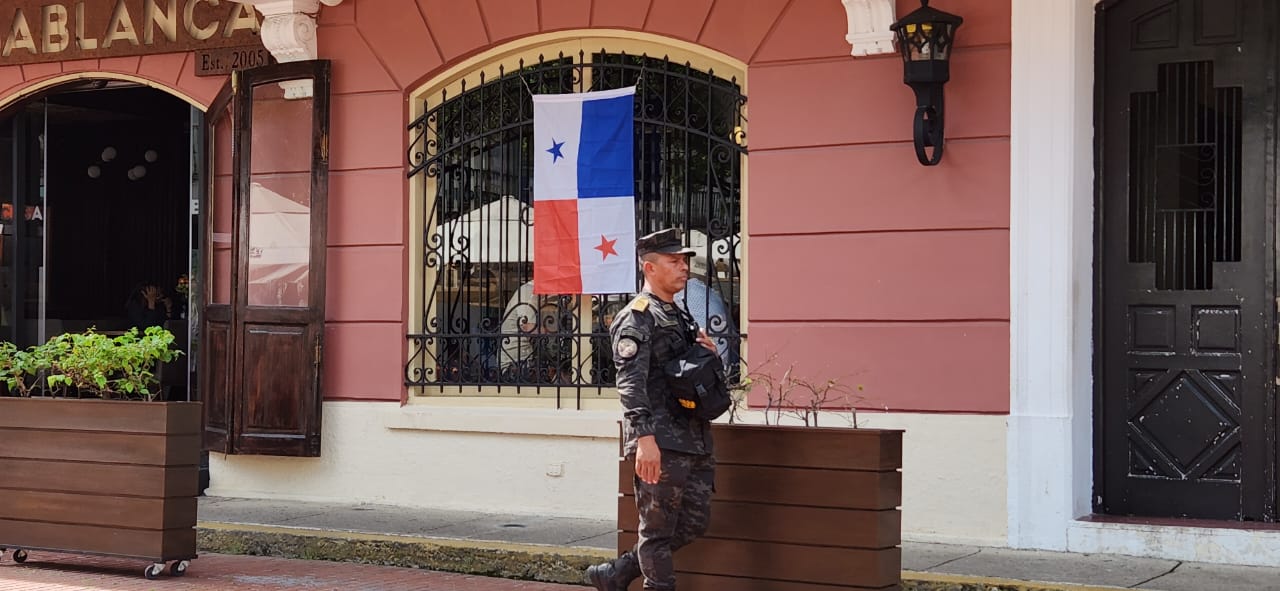
The mining fiasco will now most likely see the government of Panama having to defend itself in several international arbitration actions. If it loses, and the signs are there, these could cost the government north of $60bn, accounting for lost income by the company and its suppliers and investors. (Photo: Supplied)
Copper is key to the global energy transition including the Electric Vehicle (EV) revolution. Copper is in wiring, ECMs, motors and other components necessary for electrification and thereby decarbonisation. DiCaprio, for one, reportedly owns the following cars: Fisker Karma, Lexus RX Hybrid, Porsche Cayenne, Tesla Roadster, Toyota Prius and Volvo XC90. All, bar the Porsche, are either electrically powered or hybrids.
If only he could drive all the activist talk.
Underneath all of this is a much larger series of questions about what kind of countries will drive the energy transition; about how they will balance natural riches with development, and who will own not only the resources but responsibility for their development.
It’s not as if Panama has not been here before.
It owes its very existence as a state to outside investment and intervention.
President Teddy Roosevelt broke the territory off from Colombia in November 1903 so the United States could finish and control the construction of the Panama Canal, finally completed in 1914 after being started (by the French) in what was then Colombia’s province of Panama in January 1881.
Inspired by the diplomat Ferdinand de Lesseps, who was able to raise considerable funds as a result of his successful construction of the Suez Canal, the French attempt at connection collapsed in 1889 after spending $287-million and losing 22,000 men, half the workforce, from disease and accidents.
The US ownership quickly became a bone of contention, fomenting rioting in the 1960s and leading to the negotiation of the treaty between President Jimmy Carter and Panamanian strongman General Omar Torrijos in 1977.
On 1 January 2000, Panama took sovereign control of the canal. It was the moment that Panamanians had been fighting for, for over 97 years.
As the poet Rodolfo Caicedo wrote a century before on ‘Peace and Progress’ in Panama:
Progress will come under its protection…
Once the Isthmus has been opened by a deep wound, this luminous breach will be a beacon,
an inexhaustible source of life.
On its edges, those who are hungry, those who suffer the miseries of beggars,
will flock
in a noisy swarm to seek bread and to beg for shelter.
During the 1960s and 1970s, Panama foundered between two competing commitments: to support US interests in the isthmus and to promote Panamanian development and a capitalist class.
That contradiction was obscured during the Noriega period when development was largely eclipsed by the militarisation of the canal under Panamanian security forces.
Now, the contradiction is back – between seeking a better future through development and radicalising the choices that this involves.
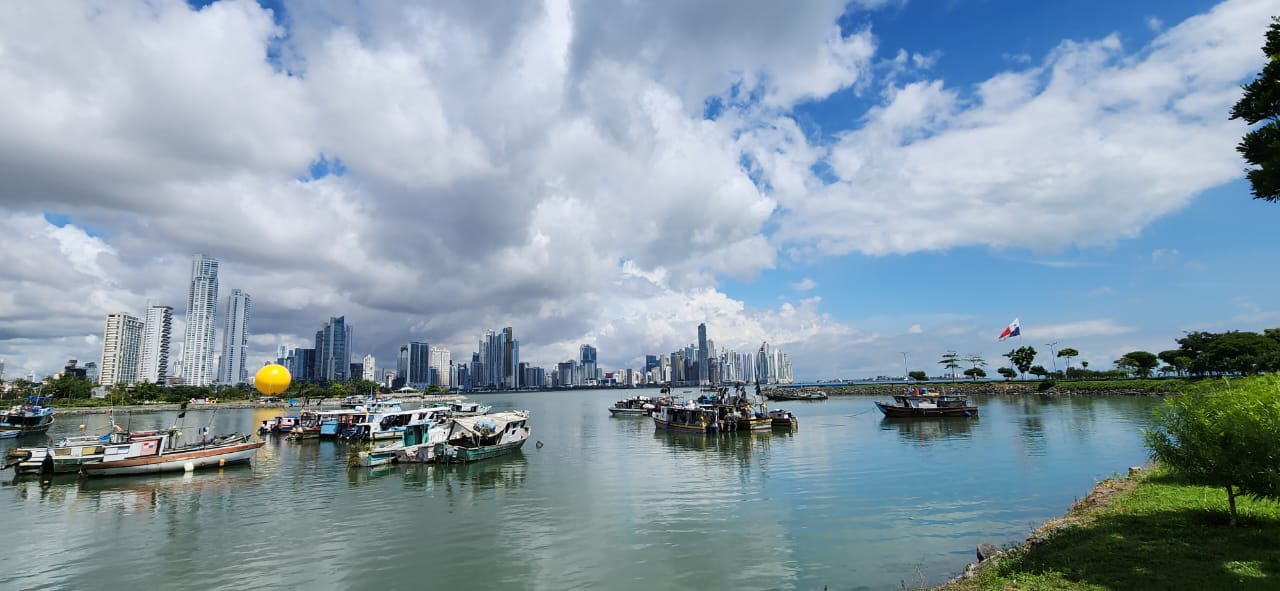
Panama and others with a similar risk profile will have to fill the development gap with other activities including tourism and manufacturing, which so far have proven insufficient for the population’s needs. (Photo: Supplied)
Today, the grandchildren of those who survived the deprivations of military rule of the 1960s and 1970s, and the children of those who stood up to Noriega in the 1980s, are among those protesting in the streets of Panama City under the banner, “Panamá vale más sin mineria — Panama is worth more without mining.”
If such “nimbyism” pervades, there would be no energy transition.
That transition will depend on mining companies receiving reasonable returns for their shareholders’ investment, and guarantees to invest capital and skills to do so.
Absent these returns and the related ability to derisk investments, companies will vote with their feet to more stable jurisdictions.
And Panama will be stuck, its attempt to diversify stuck beyond being a safe haven for distressed Latin Americans fleeing instability and a sea passage between east and west.
Panama and others with a similar risk profile will have to fill the development gap with other activities including tourism and manufacturing, which so far have proven insufficient for the population’s needs.
Resolving this dilemma, and spurring diversification, places a premium on strategic political skills and the necessary charisma to push things along, just as Torrijos and Carter did two generations ago with the canal.
Until then, Panama’s latest saga is a masterclass in stuffing up a country.
In Panama, as in much of Africa, the private sector is too tempting a target for actors and activists alike. When the show is over and the caravan has moved on, zooming along in their copper-wired cars to the next cause célèbre, real economies take decades to recover. DM
Dr Greg Mills has been in Panama. www.thebrenthurstfoundation.org



















 Become an Insider
Become an Insider
One of the best written articles. And true.
Hmm. So it seems we are not the only country that is ruled by imbecilic fools.
He he he he…..
“populist politics, hapless and ailing leadership, the peddling of falsehoods and cynical opportunism, an upcoming election, an opposition seeking a populist message and smelling the ruling party’s blood, an opposition leader and former president apparently destined for jail on corruption charges, and widening social and economic inequality and worsening distress countrywide.”
Now where else have we seen that combo in action . . .
I am not a white Zulu for nothing!
Please there’s no comparison, Panama sounds like paradise compared to our junk economy.
Very interesting and informative article. Thank You.
It always amazes me how politicians and their supporters make decisions based on emotion while failing to consider the obvious long term consequences. This could also be viewed as the cause of failure of the first democratic government in the Roman Empire. This could be one of the negative characteristics of democracy. Well done Greg.
Nowadays, unfortunately whatever I read I know behind the rhetoric is an agenda, the writer should disclose in full why the article was written, who paid for the article. It’s well written and must have cost a lot especially if it was commissioned.
One thing that article fails to address is the fact that the ruling found the contract to be in violation of 25 individual articles of Panama’s constitution. That in itself should be taken with caution by foreign companies, not because of the possible lack of juridic security, but because government officials would sign contracts ridden with vices that would be later stricken down.
As a Panamanian advocating for rule of law and free enterprise, I can only hope that this ruling was made following the law, and that said law was indeed fair (mind that what is legal is not always fair, and what is fair is not always legal).
Very well written but so much of the article is not about the mine and the issues surrounding the mine and so could have been cut to provide that context.
Is there a specific reason you ignore the grounds on which the contract was struck down?
Or the possibility of someone else doing the Mining under a contract that doesn’t violate sovereignty like the Canal Project?
Genuinely curious as I usually find you a reasonable fellow.. hoping it’s not just because you realised you couldn’t win the arguement if you presented all the facts.
PS: I’ve also been to Panama. What does that have to do with the recent court ruling/protests/the mine itself?
I was wondering the exact same thing. The author’s jab at DiCaprio and unneeded history about the canal aside, what is he trying to achieve? “Panama’s latest saga is a masterclass in stuffing up a country” is in itself a rather dramatic and emotional statement. I am genuinely wondering what the agenda here is. As other commentators here have pointed out, there are glaring omissions and that appears to be deliberate.
The Brenthurst Foundation was established by the Oppenheimers. Not even a conspiracy theory – it’s on their web site. Seems a tad dishonest not to declare the conflict of interest up front.
Agree there is something more than a little uncomfortable about the lack of information regarding the issues about the mine and the constitutionality of the contract itself. A glowing report on the mine’s tree planting and income for the country but then general sort of airy fairy insults with People magazine style insults and allegations when looking at the other side of the argument.
The general argument is plausible, but no attention whatsoever is given to the grounds of the local protests, other than sarcastic remarks about international supporters. What exactly is the situation of indigenous people in this matter, for example? Simply imposing a cookie-cutter Brenthurst-style model of ‘real economics’ on the situation is not convincing.
Agreed.
There is no reason to believe South African business is acting in a manner that is against the interests of the country. The evidence of business organisations and individual businesses shows a business community that wants South Africa to succeed except for a few rogue individuals and unethical businesses that are not representative of the South African business. We have businesses rolling up their sleeves be it on the youth unemployment, the energy crisis and the logistics crisis and other issues related to skills. The disappointment has been the thieves in our government whose incompetence is a major problem. These are the reasons that we are not going to reach Panama situation . When you have mining executives, banks, industry, raising their hands to lift the country out of its current morass you can only say that there is hope in the country.
The important thing is for the political class to accept the business hand and those who are opposed to business with empty expletives should realise that business does not owe the country this gesture but we should be grateful that they do not say that they are paying taxes and the salaries of employees and therefore have no obligation beyond that . Corporate citizenship is very crucial in any country but has to be reciprocated by a responsive government not thieves who are rent seeking otherwise they are going to discourage this positive attitude.
Bring back the stolen property and loot.
You’ve got it all
Blood diamond is based on De Beers’ work Greg ($$$)!
Yes this article does have an uncomfortable pro Brenthurst stench to it. Particularly with the opposing facts reduced to an opportunity to slander and mock an actor they seem to dislike. Shame.
Slightly incoherent article at times but interesting. Not sure why the author keeps jibing at DiCaprio – sure he is a rich foreigner, but he seems to be trying to do the right thing ?
The problem of rich natural resources not being properly exploited for the good of the general populace sadly repeats itself all over the world.
Panama is not for sale. …and we do not want to kill our ecological system either …..Quantum can dig in Canada so leave our land in peace !!
This article is corporate fear mongering. Panama does not want to sell it’s most important resource to a foreign company. The reversal of the contract is a reminder of a populations power against foreign corporate interests. It was a horrendous deal for Panama.Why worry about investment ratings by the same elite that created the financial crash in 2009. The people of Panama are standing up for themselves and long may it continue.
.
N/A
ok
Good article and reality check for everyone. It could have been written a few decades ago in a place called Zambia, and look where that lead that previously prosperous country. And all the while happy to live in the lap of tech luxury critically dependent on mining.
The important idea that this article misses is that the people of each country get to decide how their country is run and what its national values are. The people of Panama have decided that putting a priority on their environment is more important than mining dollars. And if mining is to be done, it should be a Panamanian company so that Panama gets 70%, 80%, 90% etc of the profits, not 5%
This all seems very reasonable to me.
As a Panamenian to see the corruption and the state of this beautiful country in the hands of thiefs A.K.A The goverment! Glad the people were able to stand up agaisnt this plan althought I’m not proud of the looting or other violent acts that was induced around the country.
Yeah, your will for the Panamanian people was to let a multinational corporation extract all the minerals while the Panamanian population received nothing. Genius article.
Well wriien article. And some very valid points. But I didn’t see any mention of the real environmental impact on little narrow geographically strategic Panama. An open pit mine whether it be copper or gold or aluminum can have devastating impact on a fragile delicate environment. I asked a Panamanian friend of mine who helped me build my house in Chiriqui and who worked in that mine for 6 months how carefully was the waste from the mine controlled and he told me it’s bad news..Tons of waste matter into the river/a and then into the sea. Add to that the incredible corruption of the Cortizo regime and the bribes paid to him and many others in the Panama pirate political matrix and all I can say is WELL DONE PUEBLO PANAMA..Having said that if there is a way to do it with minimal and acceptable impact on the environment..Then go for it…
Aaaah this still all sounds like paradise compared to South Africa’s junk status economy. The bird life is also absolutely out of this world I hear.
Without the ladyboy problem I hear..
Closely followed by the ANC’s masterclass in how to trash a country’s economy??
Ugh, please give us a break. There are 2 main criminals here: the corrupt government and the company taking advantage of this corruption.. shame on all of them!!! So they are the ones who now have to find a solution that will work for everyone…
There are a lot of ex pat South Africans in Panama. I wonder what there take is on what’s going on.
This article is so filled with misconceptions of what Panama really is. The last Contract for First Quantum Canadian Mine with Chinese, and Korean interests had 25 violation to the Panamanian Constitution. The people of Panama prefer to save the last tropical forests and biodiversity that the copper mine was rapidly destroying in a mass of death and destruction of the environment. The original Concesion had been declared unconstitutional in 2017, but the Foreign Mine knowingly continued to operate illegally and WITHOUT a contract for 5 years, under corrupt deals with corrupt politicians.
The company’s lawyers must have or should have known that the contract with the government had many constitutional violations.
A contract that was illegal ab initio has little chance of success in a court of arbitration.
I’m no lawyer but it seems to me and many shareholders that FQM shares are a sell.